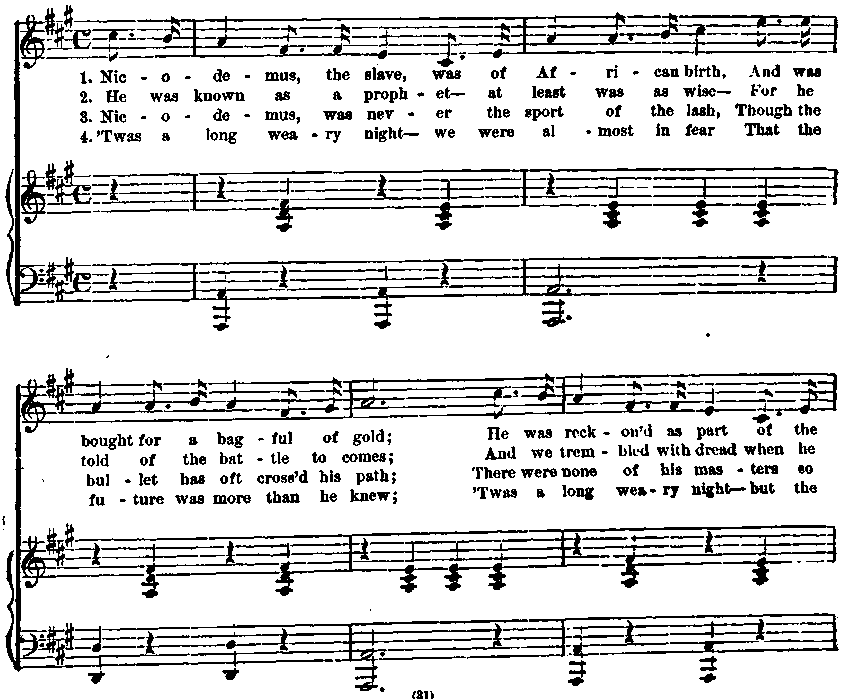Familiar Songs - Their Authors & Histories
300 traditional songs, inc sheet music with full piano accompaniment & lyrics.
| Share page | Visit Us On FB |
|
WAKE NICODEMUS. |
481 |
||
|
Mr. Work was bora in Middletown, Connecticut, October 1st, 1832. The family is of Scottish origin, and the name is thought to have come from a castle, " Auld Wark upon the Tweed," famed in the border wars. When Henry was very young, his father removed to Illinois, and the boy received but an irregular education. He relates that when eleven years old he thought that, as Greek and Latin had proved of great service to the world, it would be a noble enterprise to invent a few new languages. Accordingly he invented two, one in which he used the English alphabet inverted, and one for which he made an entirely new alphabet. Only the difficulty of obtaining writing-paper on the prairie prevented them from becoming literatures as well as languages. Two years after his invention of letters, young Work was taken back to Connecticut, and, greatly to his delight, apprenticed to a printer. While working faithfully at the case, he also found time to study harmony, and to make modest contributions to poet's corners. His first song,which brought him twenty-five dollars, belongs to this epoch. In 1865 Mr. Work went abroad, and on his return he invested his then considerable fortune in the fruit-growing enterprise in Vineland, New Jersey. But financial and domestic misfortunes overwhelmed him, and for several years he left all the familiar scenes and associations, after which he returned to New York city, where in 1875 he connected himself, as composer, with Mr. Cady of the former firm of Koot and Cady, music publishers, who had held the copyrights of all his songs, and had lost them with their other property in the great fire in Chicago. Mr. Cady was reestablishing business in New York, and brought out in quick succession songs of Mr. Work's, which have had large sales. The song-writer also became a somewhat successful inventor, and a patented knitting-machine, a walking doll, and a rotary engine are among hia achievements. He died in Hartford, Conn., June 8, 1884. |
|||
 |
|||